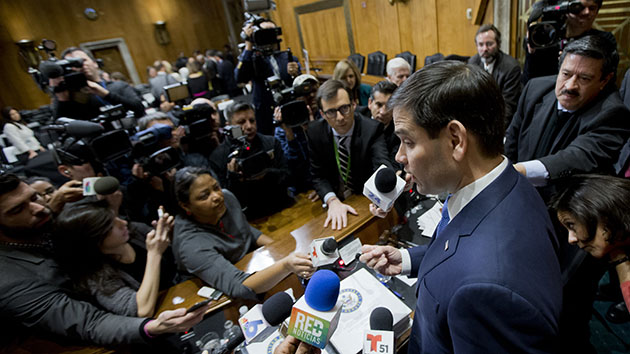
Charles Krupa/AP
One of the big question marks hanging over Marco Rubio’s financial past may soon be answered. On Tuesday, the senator’s presidential campaign agreed to release records detailing his use of a Florida Republican Party credit card from his time in the state House.
For years, Rubio’s political career has been haunted by his misuse of a credit card issued by the state party—raising question about his finances and his ethics. When he ran for the US Senate in 2010, Florida reporters obtained his credit card records for 2007 and 2008, which showed that Rubio often used the party card to cover personal expenses, from a $7.09 charge at a Chick-fil-A to $10,000 for a family vacation in Georgia. Rubio has repeatedly contended that he paid the party back every month for any personal expenses he put on the party American Express card, but records show Rubio did not make monthly payments, including any repayments during a six-month stretch in 2007.
But two years of records, from 2005 and 2006, have remained secret. As he runs for president, questions about Rubio’s credit card use have mounted. “Marco Rubio has a disaster on his finances,” rival Donald Trump charged on Tuesday, urging the press to take a closer look at Rubio’s credit cards. “He has a disaster on his credit cards.”
So after years of hiding his 2005 and 2006 records, Rubio has finally agreed to release them. In response to repeated requests for the records from the Tampa Bay Times, the campaign said this week that it would release the missing records soon—possibly in the coming months.
Candidates often have to weigh whether the information contained in their records is more harmful than the bad publicity that comes from speculation over what they are hiding. (Think Mitt Romney and his tax returns in 2012, or Hillary Clinton and her emails this year.) Rubio has apparently made the calculation that whatever his credit card records contain is less harmful than weathering continued attacks about his secrecy. We’ll know soon enough.







